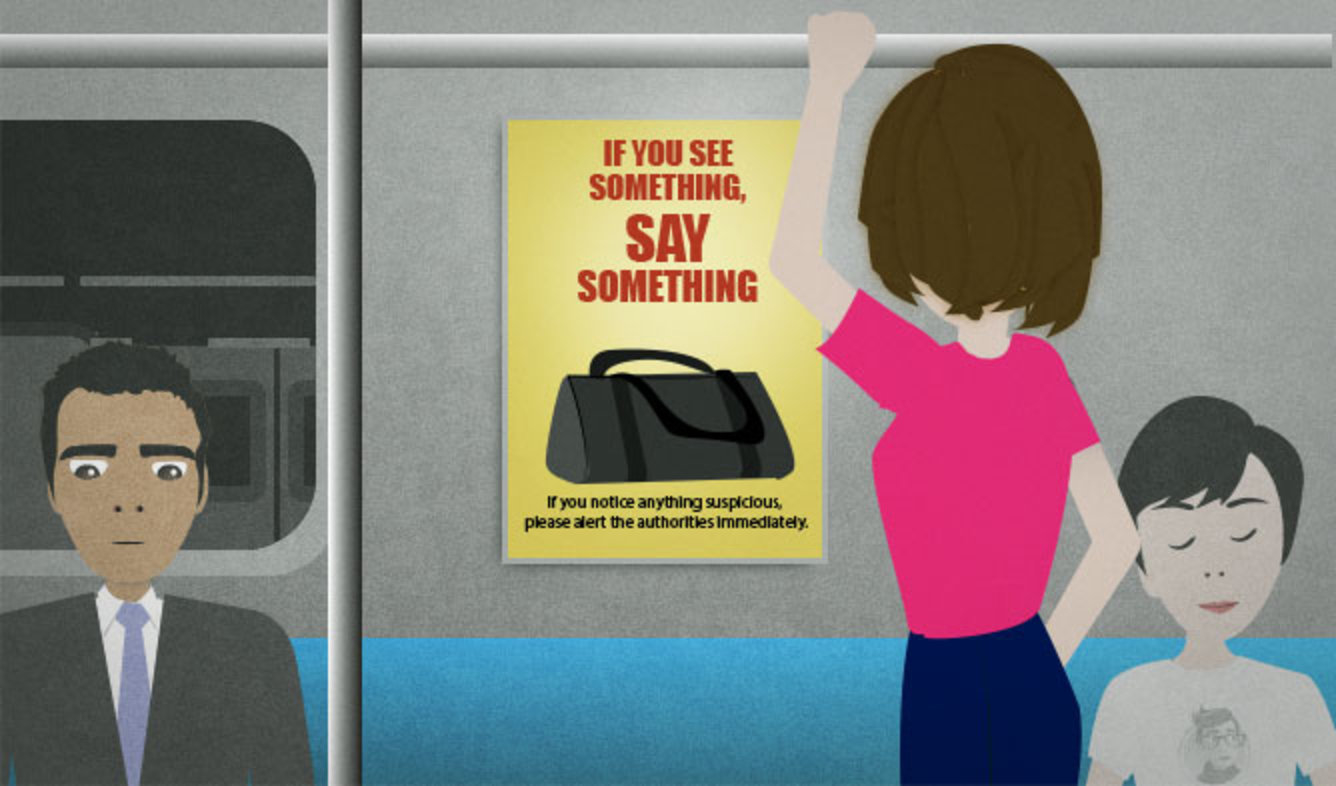“If you notice anything suspicious, please alert the authorities immediately.”
You're riding the subway. There's a sign which warns riders to watch for strange packages which might contain bombs. The sign says this.
If you notice anything suspicious, please alert the authorities immediately.
Want Video and Sound? Follow us on YouTube

If (something happens), (do something)
You can use "if" to talk about what to do in a certain situation:
If you see Jacob, tell him I said "Hi".
If I get sleepy, I'll pull over and take a nap on the side of the road.
This type of "if" sentence is known as a "first conditional".
notice something suspicious
A "suspicious" thing makes you feel distrustful. Some examples of "suspicious" things include:
- A friend tells you that he stayed at home last night, but seems like he might be lying.
- There's a suitcase laying on the floor in the middle of a crowded airport, with no one standing next to it.
So an object is "suspicious" if you think it might be dangerous. When you see something and start to think that it's suspicious, you're "noticing something suspicious".
please (do something) immediately
This is a way of giving instructions which is very formal and strict.
You most often see this phrase written on warning signs. For example:
If you hear an alarm, please exit the building immediately.
alert the authorities
"Alerting the authorities" means telling police or security staff about something dangerous or illegal. For example:
As a teacher, I'm required to alert the authorities if I hear about any kind of child abuse.
The phrase "alert the authorities" is formal. In everyday conversation, the expressions "call the police" or "call the cops" are more common.
